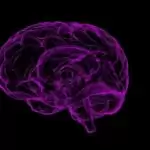
By Shashank Suresh
World Alzheimer’s Day is celebrated every year on 21 September, raising awareness of Alzheimer’s disease and dementia. This day is observed to recognize the significance of discussing dementia and debunk its myths. ‘Know dementia, know Alzheimer’s’ is the topic for World Alzheimer’s Month in 2021. While September 21 is designated as World Alzheimer’s Day, the whole month of September is designated as World Alzheimer’s Month.
Alois Alzheimer, a German psychiatrist, and pathologist was the first to identify Alzheimer’s disease in a 50-year-old lady in 1901. Alzheimer’s disease is a degenerative illness that causes brain cells to deteriorate and die. It is the most prevalent cause of dementia, and it results in a steady decrease in a person’s intellectual, behavioral, and social abilities, impairing their capacity to live independently.
Read also: Time to opt for sustainable lifestyles, says actress Shweta Tripathi
Lifestyle and heart health
According to research, the same risk factors linked to heart disease have been linked to an increased risk of Alzheimer’s disease. Lack of exercise, obesity, active and passive smoking, high blood pressure, high cholesterol, and poorly managed type 2 diabetes are only a few of them. Changing one’s living behaviors can reduce the chance of Alzheimer’s disease. Regular exercise and balanced, low-fat diet rich in fruits and vegetables are suggested to postpone the onset.
Mild cognitive impairment
Mild cognitive impairment (MCI) is defined as a deterioration in memory or other thinking skills that are higher than expected for someone of a certain age. Around 15% of people diagnosed with MCI go on to develop Alzheimer’s disease each year.
Making judgments and decisions
In everyday settings, one’s capacity to make rational decisions and judgments will deteriorate. A person’s social behaviors may be out of character or dress inappropriately for the weather. It may be more difficult to respond efficiently to common difficulties such as a stove that is burning or unexpected driving conditions.
Memory loss
Alzheimer’s disease is characterized by memory loss. It’s natural to lose track of where one’s keys are or to forget the name of a friend. However, Alzheimer’s disease-related memory loss remains and worsens, impairing one’s capacity to perform at work or home. Alzheimer’s patients are prone to repeating comments and inquiries and forgetting discussions, appointments, and events.
They frequently misplace their belongings, putting them in strange places. They may become disoriented in familiar surroundings and have difficulty returning home after a walk. They are distressed when they forget the names of family members and everyday items. Finding the right words to identify objects, convey thoughts, and participate in discussions becomes challenging.
Read also: Lifestyle practices that are affecting our health
Poor sleep patterns
Poor sleep patterns, such as difficulties falling asleep or remaining asleep, have been linked to an increased risk of Alzheimer’s disease in studies. According to studies, there is a link between lifetime participation in cognitively and socially engaging activities and a lower risk of Alzheimer’s disease.
Planning and performing familiar tasks
As the condition develops, even simple tasks like cooking a meal or playing a favorite game become difficult. Moods and behaviors can be affected by Alzheimer’s disease-related brain alterations. They may become sad, apathetic, and socially isolated as a result of their experiences. Mood swings, mistrust of people, impatience, and agitation are all typical side effects. As the illness advances, they are more likely to have delusional beliefs, such as feeling that others are stealing their belongings or that their caretakers are imposters.
Preserved skills
Many essential abilities are maintained for extended periods, even while others deteriorate. Reading or listening to books, sharing tales and reminiscing, singing, listening to music, dancing, sketching, or performing crafts are all examples of talents that can be preserved. These abilities are regulated by regions of the brain that are damaged later in the disease’s progression.
Thinking and reasoning
Multitasking is particularly tough, and keeping track of bills can be difficult. These problems might lead to a complete incapacity to recognize and interact with numbers.
Read also: Five lifestyle habits damaging your health
Covid and Alzheimer’s
The Covid-19 epidemic has altered our life by causing a slew of serious illnesses. According to experts, people with advanced Alzheimer’s disease are more likely to experience paranoia, rage, disorientation, sadness, and other symptoms. As a result, they demand help and personal attention at all times. Because of the pandemic’s extraordinary developments, their treatment has also been severely impacted. Here’s everything you need to know about Covid and Alzheimer’s on World Alzheimer’s Day 2021.
Alzheimer’s disease causes memory, cognitive, and behavioral issues. Symptoms may be minor in the early stages, but they can quickly increase. Everyone’s pace of progression is variable, but on average, persons with Alzheimer’s survive for eight years after symptoms appear. More than four million individuals in India have dementia. Dementia affects at least 44 million people worldwide, making it a global health problem that must be addressed. Alzheimer’s disease is the most prevalent kind of dementia, accounting for 60 to 70% of all cases. By 2030, the number of cases in India is expected to increase, and by 2050, it will triple.
Several research has suggested that Covid-19 may have long-term consequences like forgetting, execution, and language issues, and many more have indicated that Covid may hasten Alzheimer’s-related symptoms. A Cleveland Clinic study revealed a link between viruses and proteins/genes linked to Alzheimer’s disease and dementia. More research and long-term studies will be required to confirm these preliminary findings, and the situation will become more evident over time.
